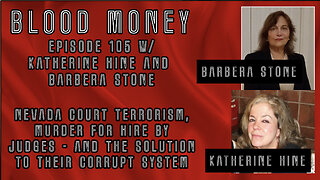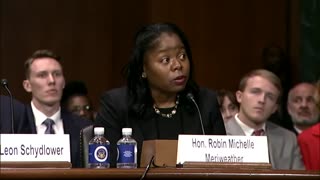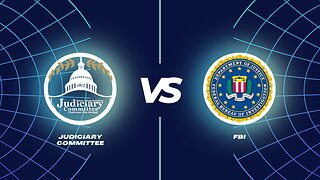Sen. Kennedy to Biden Judicial Nominee: ‘You Have More Sympathy for Criminals than Victims, Don’t You?’
Kennedy: “Thank you. Thank you, Mr. Chairman. Ms. Campbell, you — you lied to Senator Grassley, didn’t you?”
CAMPBELL: “No, senator.”
Kennedy: “You told Senator Grassley that you’d never represented workers dignity, didn’t you?”
CAMPBELL: “That is correct, senator.”
Kennedy: “That’s not true is it?”
CAMPBELL: “Senator I have never represented that organization.”
Kennedy: “Yes, ma’am. That’s not true is it?”
CAMPBELL: “Senator, it is true. I served for a period of two or three years more than a decade ago on an advisory board to help them set up as a non-profit.”
Kennedy: “In fact, you were so supportive of workers dignity that not only did you represent them, you didn’t charge them a fee. Isn’t that correct?”
CAMPBELL: “Senator, when I was on their advisory board more than a decade ago, I did volunteer my time.”
Kennedy: “Right. You know, what this is? Do you recognize that picture?”
CAMPBELL: “No, senator.”
Kennedy: “This is from workers dignities website. There you are, right here. It’s got your name. Wow. Judge Lipez, you — you have more sympathy for the criminal than the victim, don’t you?”
LIPEZ: “Senator, I worked on behalf of victims of crime zealously as a prosecutor. As a judge I listened carefully to — to understand impact on victims and I have always take that into account.”
Kennedy: “Do you know Micah Smith?”
LIPEZ: “Michael Smith, senator?”
Kennedy: “Micah, M-I-C-A-H. “
LIPEZ: “I don’t believe I know a Micah Smith, senator. No.”
Kennedy: “OK. I bet the victims of Micah Smith remember Micah Smith if you don’t.”
LIPEZ: “Senator I — There was a defendant I attended today Michael Smith.”
Kennedy: “Mr. Smith molested a 4-year-old girl, didn’t he?”
LIPEZ: “Senator he was convicted after trial of unlawful sexual contact under Maine law.”
Kennedy: “That’s a nice way of putting it.”
LIPEZ: “That was a charge, senator.”
Kennedy: “Right. Mr. Smith molested a 9-year-old girl, didn’t he?”
LIPEZ: “Senator again, he was convicted of unlawful sexual contact against two children. In that case, I did impose the sentence the state requested.”
Kennedy: “At — at oral argument, this is — this is how Mr. Smith’s conduct was described. Quote — you heard this testimony — ‘All of the abuse is done in the same fashion. Smith would rub his fingers in a circular motion on the vagina of each child. And he did so repeatedly.’ Now where I come from, we call that sexual abuse. You can — you can pretty it up all you want to, judge. This is what you said at Mr. — Mr. Micah’s sentencing? These are your words, not mine. ‘What I can say’ — you said — ‘is that this is a very tragic situation of a person who has a lot of good in him, a lot of good in him, having done a very reprehensible thing to two young children causing extreme damage.’ Did I read that correctly?”
LIPEZ: “Senator in that case, I imposed the sentence the state requested.”
Kennedy: “Did I read that — your quotation correctly?”
LIPEZ: “Senator, that I think is a portion of what I said at sentencing. My focus was on —”
Kennedy: “But — but the words I’ve read, are — are they correct?”
LIPEZ: “That’s what was reported in the paper, senator. I have not seen a transcript of the sentencing.”
Kennedy: “I bet the victims remember, judge. You might have forgotten just like you forgot his name. But I bet the victims remember. And then you handed down a sentence. You gave Mr. Smith 12 years, but you suspended six of them, didn’t you?”
LIPEZ: “Senator, that was at the recommendation of the state because they —”
Kennedy: “But — but it was your ruling. Did you — is — is that an accurate statement of your ruling?”
LIPEZ: “Senator, I accepted the state’s recommendation that six years should be suspended so that Mr. Smith would be required to participate in sex offender treatment.”
Kennedy: “So that — that — that I — I — I appreciate the lengthy explanation. But I think it’s pretty simple, simple question. That was your sentence, right?”
LIPEZ: “Yes, I imposed the sentence —”
Kennedy: “All right.”
LIPEZ: “— as state requested in that case.”
Kennedy: “Are you familiar with the Bangor Daily News?”
LIPEZ: “I am. The Bangor Daily News, senator.”
Kennedy: “Right. Did you read the article they wrote, quote, ‘Light sentences send a message that domestic violence does not matter,’ end quote? Do you remember that article?”
LIPEZ: “I have read it, senator. I — I believe it mischaracterizes the case that is described.”
Kennedy: “That was — article was about you, wasn’t it?”
LIPEZ: “My recollection, senator, is that it described several different cases. The case that I worked on, it was described there. The defendant in that case was acquitted by a jury of the most serious conduct. And that was not reflected in that article. And so —”
Kennedy: “So the newspaper got it wrong.”
LIPEZ: “That was an op ed that I believe misunderstood what happened, which is the jury acquitted the defendant of the most serious conduct that he was charged with. I was not the fact finder in that case. And so at sentencing, I was bound by the jury’s verdict.”
Kennedy: “Let me ask you, I’m going to run out of time here. I wish I had more time for you, Ms. Campbell. But your — your — I’ve seen a lot of — a lot of activist judges and I’m not saying you’re the most activist, but the list you’re on it sure doesn’t take long to call the roll. Let me finish with this question. And as I began, Judge Lipez, you have more sympathy for criminals than victims, don’t you?”
LIPEZ: “Senator, I have the support of the Maine Coalition to End Domestic Violence and the Maine Coalition Against Sexual Assault. I believe that support is a reflection of the work I did as a prosecutor, as well as the care I take with cases involving victims as a judge.”
Kennedy: “You’re embarrassed to answer my question, aren’t you?”
-
 1:47:02
1:47:02
Blood Money
8 months agoNevada Court Terrorism? Murder For Hire by Judges? w/ Katherine Hine and Barbera Stone
110 -
 6:26
6:26
NewsVids
5 months agoSen. Kennedy Humiliates Another Biden Nominee Who Can't Answer A Simple Question
4351 -
 12:23
12:23
TheDrNasirShaikhShow
1 year agoTed Cruz FURIOUS On Biden Nominee Michael Delaney - ASKS 'Why Did You LIE IN Previous Testimony'
1381 -
 1:28:12
1:28:12
SheinSez
1 year agoBiden regime gives sweetheart plea deal to Hunter Biden -SheinSez 206
662 -
 16:47
16:47
Declarations of Truth
9 months agoJudiciary Committee focuses on Elvis Chan
418 -
 1:15:27
1:15:27
Indicrat
1 year agoHouse Oversight Committee Exposes Biden Crime Family In Powerful Press Conference
9985 -
 0:59
0:59
Chad Prather
8 months agoSen. Bob Menendez Got Caught, How Many Other Politicians Are GUILTY?
1.07K2 -
 5:21
5:21
NextNewsNetwork
2 years agoSenator Kennedy Exposes Disqualified Biden Judicial Nominee
2.12K7 -
 8:28
8:28
Congressional Hearings and Political Insights
8 months agoProvocative Past Statements Exposed: Kennedy Grills Judicial Nominee
15 -
 7:14
7:14
Sean Hannity
9 days agoSen. Kennedy: ‘You Have More Sympathy for Criminals than Victims, Don’t You?’
28K44